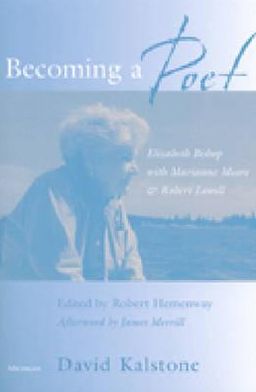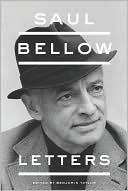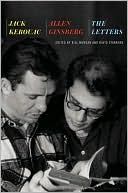Becoming a Poet: Elizabeth Bishop with Marianne Moore and Robert Lowell
Becoming a Poet traces the evolution of Elizabeth Bishop's poetic career through her friendships with other poets, notably Marianne Moore and Robert Lowell. Published in 1989 following critic David Kalstone's death, with the help of a number of his friends and colleagues, it was greeted with uniformly enthusiastic praise. Hailed at that time as "one of the most sensitive appreciations of Elizabeth Bishop's genius ever composed" and "a first-rate piece of criticism" and "a masterpiece of...
Search in google:
A celebrated study of Elizabeth Bishop's genius, as revealed through her literary friendshipsPublishers WeeklyWhen Elizabeth Bishop, a senior at Vassar in 1934, met Marianne Moore, she clutched the older poet's ``very generous and protective apron.'' Moore's serene ability to enter into the life of things sharpened Bishop's own observational powers. In their friendship, Bishop played the role of wayward niece to Moore's posture as wise, eccentric aunt, in a dynamic of support and disobedience that lasted until Moore's death in 1947. In that year, Bishop met Robert Lowell, embarking on a complex, sustaining friendship that began as a flirtation and survived her alcoholism and 15-year stay in Brazil and his mental breakdowns. Although an abyss might seem to separate Bishop's open-air naturalism from Lowell's narrative lyrics laden with myth and history, Kalstone (who died after completing the draft of this sensitive study) demonstrates how the two established poets opened each other to new modes of expression. (Aug.)
\ Publishers Weekly - Publisher's Weekly\ When Elizabeth Bishop, a senior at Vassar in 1934, met Marianne Moore, she clutched the older poet's ``very generous and protective apron.'' Moore's serene ability to enter into the life of things sharpened Bishop's own observational powers. In their friendship, Bishop played the role of wayward niece to Moore's posture as wise, eccentric aunt, in a dynamic of support and disobedience that lasted until Moore's death in 1947. In that year, Bishop met Robert Lowell, embarking on a complex, sustaining friendship that began as a flirtation and survived her alcoholism and 15-year stay in Brazil and his mental breakdowns. Although an abyss might seem to separate Bishop's open-air naturalism from Lowell's narrative lyrics laden with myth and history, Kalstone (who died after completing the draft of this sensitive study) demonstrates how the two established poets opened each other to new modes of expression. (Aug.)\ \ \ \ \ Library JournalThis presentation of Kalstone's posthumous study of Bishop is an admirable work of editorial care and a testimony to Kalstone's stature as literary critic and historian. Kalstone here develops the initial insights he offered on Bishop in Five Temperaments (1977) and, keenly sensitive to the subtleties of her imagery, demonstrates the degree to which her poetry is deeply and dramatically autobiographical. He explores in detail her personal and aesthetic relationships to Moore and Lowell, and in so doing offers the most lucid and sympathetic readings of Bishop's verse that we yet possess. Further, in his discussion of her growth as an important poet, he illuminates an aspect of the history of American letters from 1945 to the late 1970s that has been neglected for noisier and more gaudy scenes and themes. Highly recommended.-- Earl Rovit, City Coll., CUNY\ \








